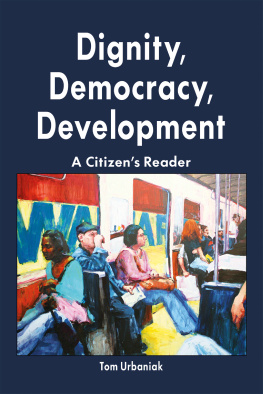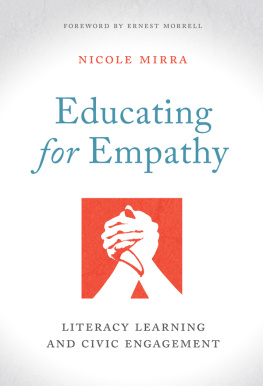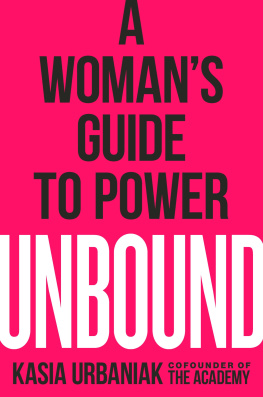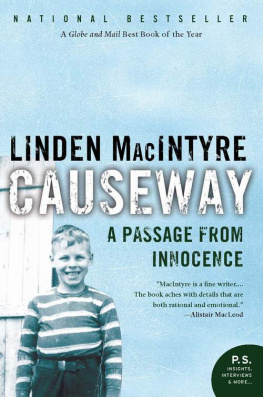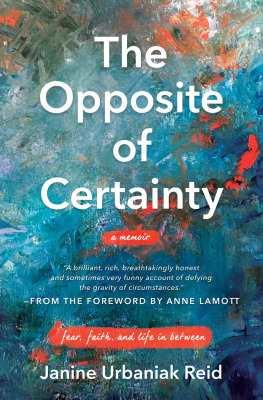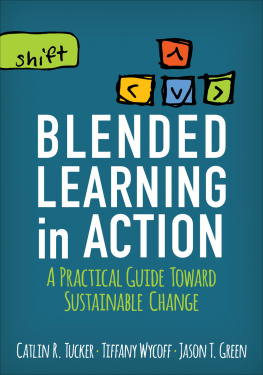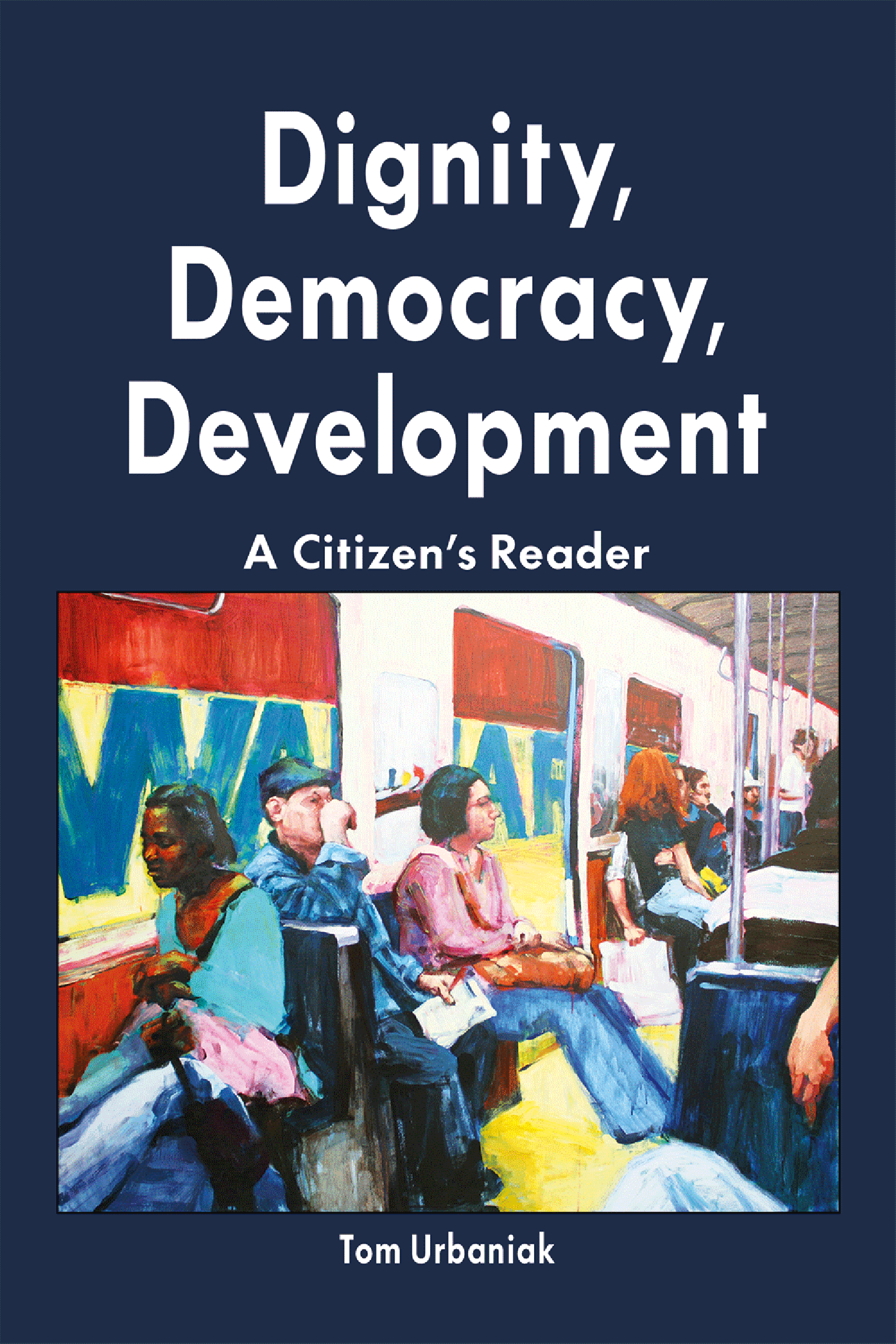Dignity,
Democracy,
Development
A Citizens Reader
Tom Urbaniak
Breton Books
Dignity, Democracy, Development 2018 Tom Urbaniak
Editor: Ronald Caplan
Production Assistance: Bonnie Thompson
Layout: Fader Communications
Front Cover Painting: Walmart by Donald Roach. Back Cover Painting: Handsleigh by Christopher Gorey. Paintings published with the generous permission of the artists.
Acknowledgements: With thanks for their encouragement, the author acknowledges Carl Fleming, Managing Editor, Cape Breton Post, and Saltwire Media for permission to reprint his columns here. And thanks as well to Ronald Caplan and his co-worker Bonnie Thompson of Breton Books.
The Tompkins Institute Series

Library and Archives Canada Cataloguing in Publication
Urbaniak, Tom, 1976-, author
Dignity, democracy, development : a citizens reader / Tom Urbaniak.
-- First edition.
Issued in print and electronic formats.
ISBN 978-1-926908-51-9 (softcover).--ISBN 978-1-926908-54-0 (ebook)
1. Social action. 2. Social action--Nova Scotia--Cape Breton Island.
3. Social participation. 4. Social participation--Nova Scotia--Cape Breton
Island. 5. Political participation. 6. Political participation--Nova Scotia--
Cape Breton Island. 7. Social justice. 8. Social justice--Nova Scotia--
Cape Breton Island. 9. Social policy. 10. Cape Breton Island (N.S.)--
Social policy. I. Title.
HN18.3.U73 2017 361.2 C2017-907492-X C2017-907493-8
Printed in Canada
Contents
Title Page:
Copyright:
: A Letter to My Students
PREFACE
Be the Change You Want to See
L ocally and globally , faith in leaders is gone. Big institutionsnot just political institutionshave lost their moral standing.
The public and private sectors seem incapable of tackling more and more complex social and environmental issues. Around the world, nasty conflicts point to no new world order.
Even in peaceful Cape Breton, we shake our heads at failed development schemes and persistent poverty, cronyism and old-style politics. Most Cape Bretoners are caring and creative, but many attest to being blocked by cynical seat-warmers. The result is collective weariness.
A few leaders, however, seem to pierce the clouds. They are servant-leaders who have disciplined themselves to personify the change they want to see. They show us self-denying dedication. They are part of our hope for the future.
James MacGregor Burns death in 2014 was mentioned briefly in the popular press, but in the political science world he cast a bigger shadow. Burns wrote about leadership in the broad sense. By contrast, most political scientists actually prefer to study things that are tangible and quantifiable like elections, regulations and budgets.
Burns distinguished between leadership and power-wielding. Leadership is less about making decisions and more about helping fellow citizens focus on real problems. Its about bringing out the best in people and taking some collective action for the common good. Leadership has a moral dimension.
Most leaders, even good leaders, are just transactional, Burns argued. They deal with a particular problem. They resolve a complaint. They react to requests.
But a few leaders are transformative. Theyre the people you want around when there is a crisis of some kind. They can help when there is malaise and weariness.
Genuinely transformative leaders are actually not revolutionaries. They work with what they have. They listen and build consensus. Theyre impressed by their communitys accumulated wisdom. But they can imagine a better place where everyones talents can contribute to something positive.
How do they get there? Of course, these leaders have practical smarts and a vision.
But they also know a thing or two about self-denial. Call it humility. Call it solidarity. Call it servant-leadership. It may be the only way to shake up crusty institutions.
When Pope Francis rejects the luxuries of office and eats in the common cafeteria, or when Justin Welby, the Archbishop of Canterbury, opts for public transit instead of a chauffeur, or when the Dalai Lama insists on having time for the individual, not just the masses, these are more than public relations stunts. Theyre stark messages to other leaders, including leaders who report directly to them, to abandon their self-satisfied ways and focus on the suffering around them.
A servant-leader doesnt have to be a global spiritual leader, nor a Gandhi or a Mandela. Calgary Mayor Naheed Nenshi is reputed for working around the clock, literally lending a hand across the city. At the same time, he talks about a vision for the city as a whole. This down-to-earth style of service gave Calgary a big boost after the citys major floods. And his tastes are pretty modestno exorbitant expense accounts there.
The message: The city matters more than my entitlements. The result: Citizens are motivated to follow the example and to take the mayors vision seriously.
Colette Roy-Larouche, the former mayor of Lac-Mgantic, Quebec, was planning to retire. Then a horrific train derailment in 2013 claimed forty-seven lives, including some of her relatives. The province extended her term by two years. She used the time with tireless dignity to rebuild the community and push for better regulations. It was hard to say no to her; this mayor had no ulterior motive other than helping her people.
Here in Cape Breton, we are lucky to have our own servant-leaders, generous women and men who toil away, often in non-profit organizations. May they persevere, and may their example finally establish a true culture of service in all spheres of politics, leadership, and community organizing.
This book is dedicated to them and to those who follow their example.
Economic Development: Beware of The Big Move
April 30, 2014
T he annual reports of Enterprise Cape Breton Corporation were usually upbeat and optimistic. But there was a telling line tucked into the report for 20122013. ECBC conceded that little progress has been made on some of the major projects expected to have a significant economic impact on Cape Breton.
Its the problem with many top-down economic development agencies around the world. They throw resources at hoped-for home runs that usually dont happen. Worse, the efforts can leave a bitter taste. Cases in point with ECBC: an exclusive marina (Ben Eoin), high-end subdivisions and lots of work for consultants to write feasibility studies and business plans.
Meanwhile, puzzled citizens in decaying communities wonder just whose strategy is being implemented.
In 1976, Muhammad Yunus was a young economics professor at the University of Chittagong, Bangladesh. He sensed that five-year plans and grand industrial strategies simply werent working.
So Yunus started talking to people who lived and worked in poor neighbourhoods close to the university. He asked sellers in tiny retail stalls why they were giving most of the money to middlemen. Why didnt they go into business themselves?
Simple, they answered. We have no capital and no collateral.
Sure enough, the banks wouldnt lend to poor people. Government agencies told Yunus the same thingthey couldnt lend to the marginalized masses or make micro-grants. Governments preferred to subsidize the few, the wealthy promoters with fancy schematics showing how they would create jobs.

